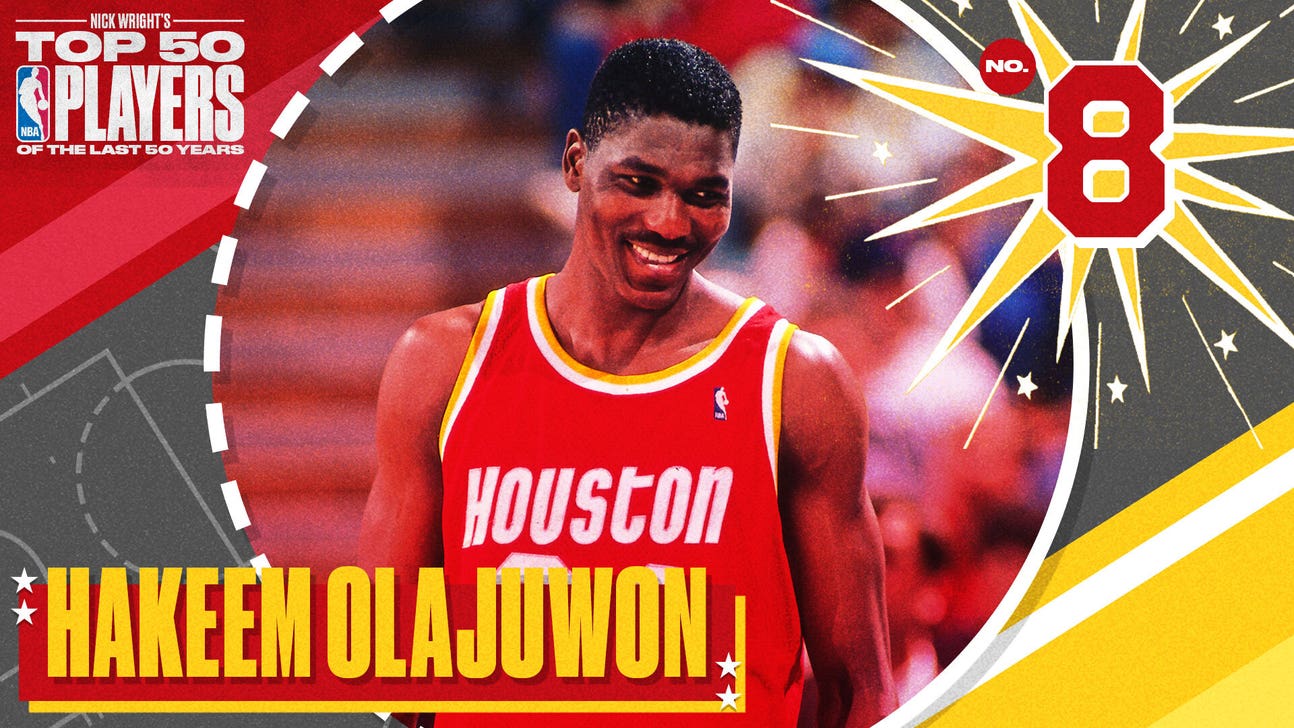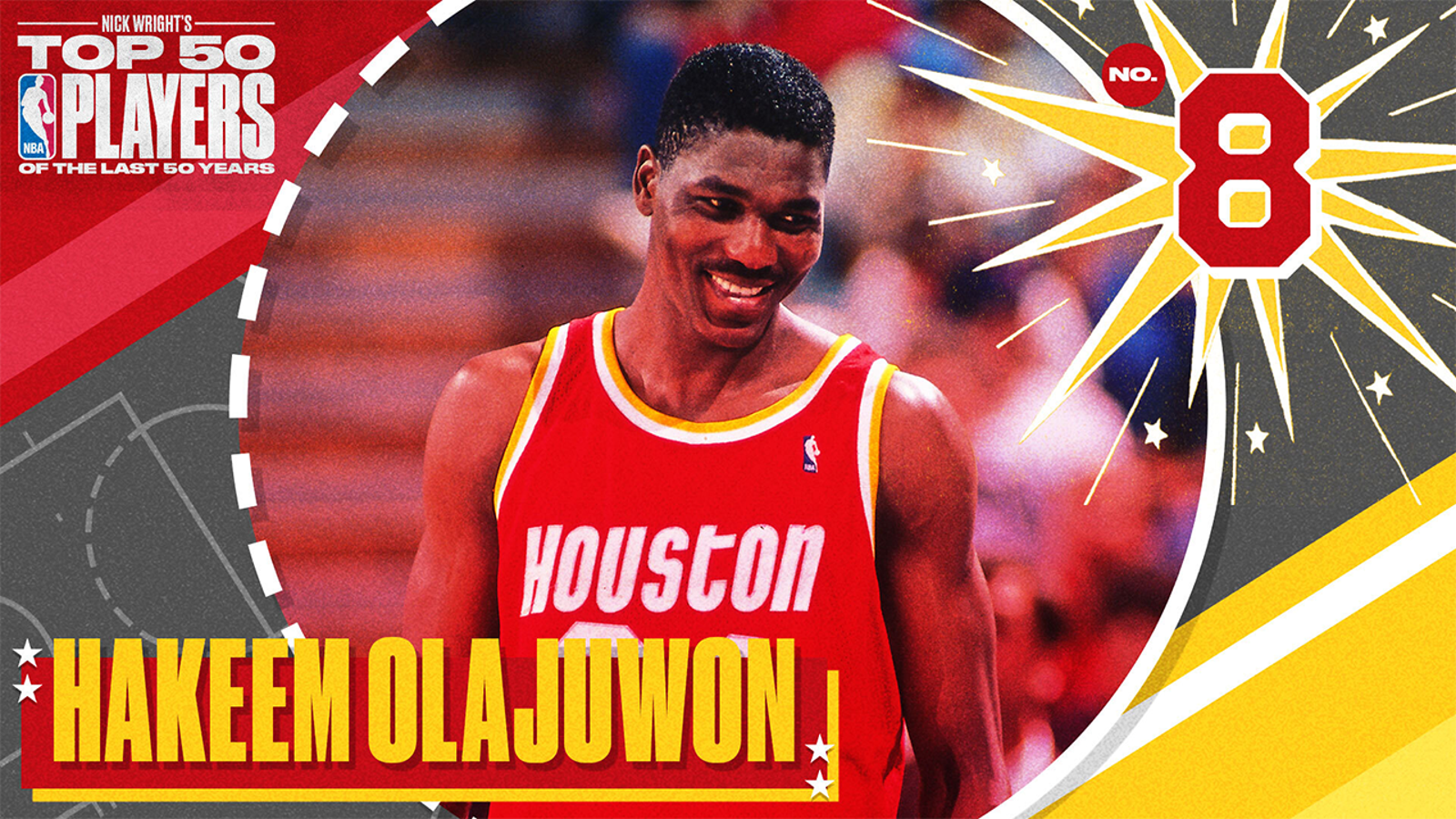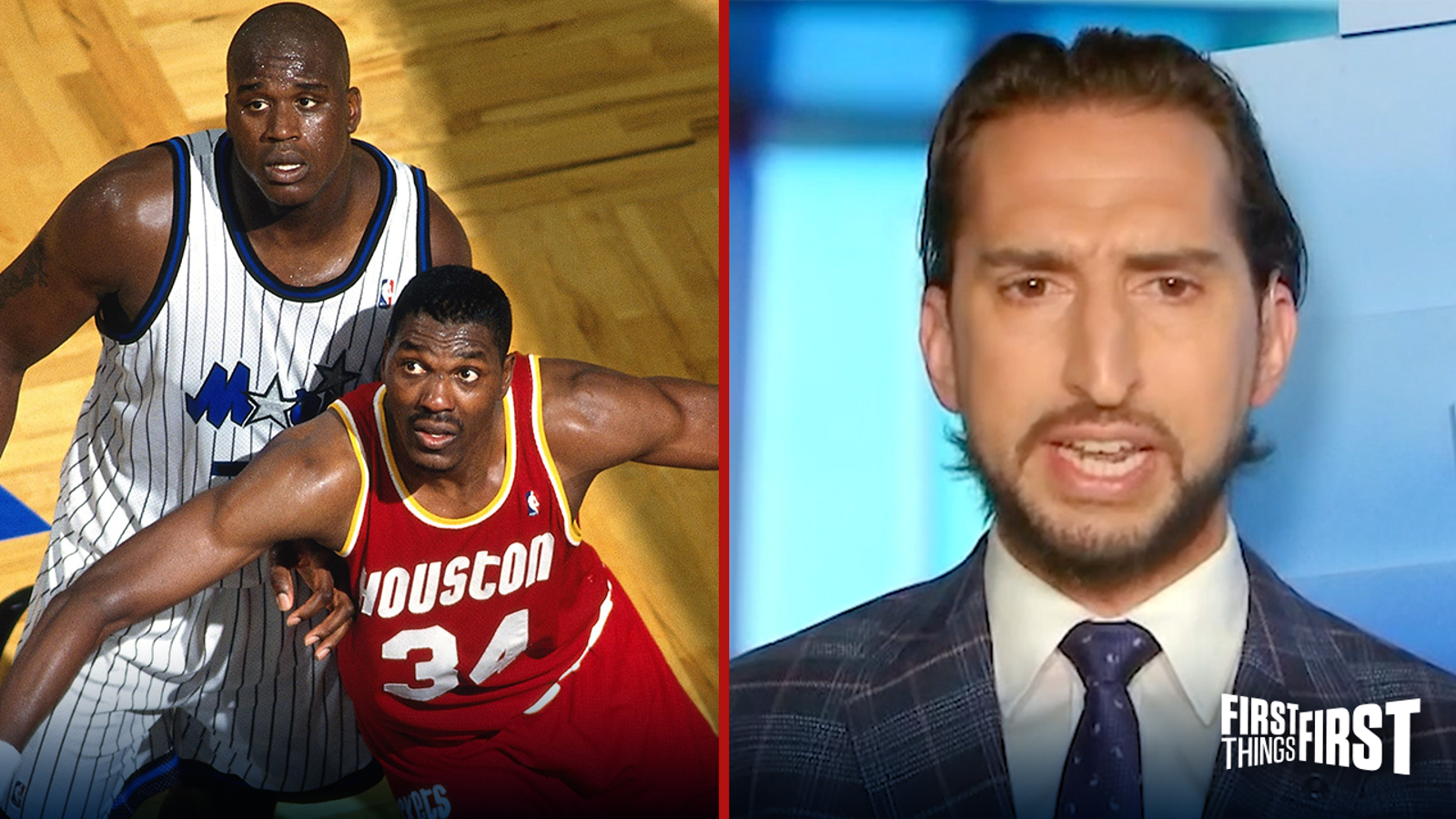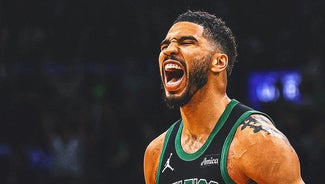
Top 50 NBA players from last 50 years: Hakeem Olajuwon ranks No. 8
Editor's Note: As part of a new series for his podcast "What’s Wright with Nick Wright," FOX Sports commentator Nick Wright is ranking the 50 best NBA players of the last 50 years. The countdown continues today with player No. 8, Hakeem Olajuwon.
Hakeem Olajuwon’s career highlights:
- Two-time Finals MVP
- 1994 league MVP
- 12-time All-Star
- Six-time first-team All-NBA, three-time second team, three-time third team
- Two-time Defensive Player of the Year
- Five-time All-Defensive first team, four-time second team
- Two-time rebounding leader
- Three-time blocks leader
- 1985 All-Rookie team
- All-time blocks leader
There are countless ways to compliment Hakeem Olajuwon. Some would call him the best center of the past 35 years. Some would say he’s the best defensive player of the past 50.
Or there’s this: Neither he nor the Rockets are ever criticized for Olajuwon going first in the 1984 NBA Draft, two spots ahead of Michael Jordan. It certainly wasn’t controversial when it happened, or even a few years into their respective careers, as the Nigerian wonder led Houston to the Finals at age 23 and established himself as the premier player at his position soon after.
"At that point in time, nobody was questioning the Hakeem over Jordan draft pick. Nobody," Wright said. "Hakeem was the no-doubt guy."
Hakeem Olajuwon is No. 8 on Nick Wright's Top 50 NBA Players of the Last 50 Years
Over time, Jordan undoubtedly proved to be better. But Olajuwon was so good, so versatile and so unique, Houston’s decision couldn’t be second-guessed. The NBA’s all-time blocks leader also sits in the top 15 in points, rebounds and steals.
No other center ranks in the top 60 in steals.
"He is, in my opinion, and I think it’s inarguable, the best defensive player on this list," Wright said. "The only player you could argue is a better defender all time is Bill Russell, and it’s so different of a game back then. But in the last 50 years, he’s the greatest defensive player.
"And because of that, I think he’s become an underrated offensive player."
Known for his footwork in the post and patented shake, "the Dream" averaged 24.5 points over his 12-year prime.
He was good for 21 a game during a rookie season that he capped off with 32 points, 14 rebounds and six blocks in his first elimination game. A year later, he averaged 31 and 11 with four blocks and two steals as Houston shocked the defending champion Lakers in the conference finals. He had another big series in the Finals but received little help from his supporting cast, and the Celtics won in six.
What should have been the foundation for a potential dynasty in Houston quickly became an anomaly. Fellow twin tower Ralph Sampson succumbed to injuries and was traded in 1987, and the Rockets produced just one other All-Star over the next nine years (one-time selection Otis Thorpe).
So as Olajuwon entered his athletic peak, the franchise hit a valley. The Rockets won two series over a seven-year stretch and missed the playoffs altogether in 1992, despite Olajuwon averaging 27-13-3 with four blocks and two steals while shooting 55% in the postseason during this span.
"Once Sampson was done essentially, Hakeem’s Rockets were LeBron’s Cavs, the first time around," Wright said. "Got to the Finals super early, [Olajuwon] was unbelievable, always produced, and the team stunk. They couldn’t put the right pieces around him."
Until they finally did. Houston made longtime assistant Rudy Tomjanovich the head coach in 1992, and he immediately guided the team to 55 wins and the No. 2 seed. Rudy T’s biggest adjustment was to gear more of the offense through his dexterous center. Olajuwon won MVP and Defensive Player of the Year in 1994, and then he ran roughshod on a host of Hall of Famers in the playoffs.
Olajuwon averaged 29-11-4 with four blocks and two steals over four rounds, including 25-10-7 with three blocks in a tight Game 7 of a Finals win over the Knicks. That made him the first (and still the only) player to win league MVP, DPOY and Finals MVP in the same season. While Jordan’s first retirement obviously opened the door for a new champion, the Western Conference emerging as the much tougher conference by the early 1990s shouldn’t be ignored.
Hakeem ranked ahead of Shaq in Nick's Top 50 NBA players
The rag-tag Rockets labored through their ensuing title defense, even after acquiring a late-prime Clyde Drexler midway through. Facing elimination from the Jazz in the first round, No. 6 seed Houston won the final two games of the series behind Olajuwon’s 73 points. He then averaged 30-12-6 in Games 5-7 as the Rockets rallied from a 3-1 deficit against the Suns. The conference finals offered a heavyweight bout between bigs, with David Robinson announced as MVP during the series. Olajuwon took that personally, dropping 40 in three of the next four games and averaging 35-13-5 with four blocks and shooting 56% versus the Spurs while holding Robinson to 24-11-3-2-45.
In the championship round, the 32-year-old Olajuwon outclassed 23-year-old Shaquille O’Neal, posting at least 31 points in all four games against the Magic en route to winning a second straight Finals MVP. For the 1995 playoffs, he averaged an otherworldly 33.0 points on 53.1% from the field.
Moreover, Dream vanquished Charles Barkley, Karl Malone and John Stockton twice, and Patrick Ewing, Robinson, O’Neal and Drexler (before he joined Houston) during the title runs, shedding years of playoff disappointment in the process.
"King of the mountain. Beat ‘em all. No easy routes," Wright said. "Everyone remembers the two rings, I don’t think they quite remember who he went through for those two rings."
The consecutive 100-game campaigns, though, clearly took a toll on Olajuwon. His production gradually declined in subsequent seasons, and Houston would make just one more deep playoff run, in 1997 after adding Barkley. Olajuwon was the best player in a star-studded conference finals series featuring the Jazz, but the aging Rockets narrowly lost anyway.
That season was the 10th and final one in which Olajuwon finished top seven in MVP voting. He’d make a 12th and final All-NBA team two years later before hanging on for three more seasons in a part-time role.
For his career, he averaged 25.9 points in the playoffs. It represents a four-point jump from the regular season and is topped by only four players (Jordan, Kevin Durant, LeBron James, Stephen Curry) who have logged at least 100 postseason games in the last half-century.
Olajuwon is the only player to record 200 blocks and 200 steals in the same season and owns four of the league’s eight campaigns with 150 blocks and 150 steals, posting three of the four highest totals in each category. He recorded one of four official quadruple-doubles in NBA history, falling one assist shy of a second, and is the charter member of the five-by-five club.
The inimitable résumé inevitably sparks debate about how Olajuwon stacks up against the game’s greatest centers, especially the one that he faced in his third and last Finals.
"Shaq’s apex obviously was higher," Wright said. "However, Hakeem’s sustained excellence to go along with the fact that — Shaq was a good, and for a brief period of time great defender — Hakeem was the greatest defender. And the fact that they played each other in the Finals and Hakeem swept him. For all those reasons, it is very close, it is one of the most hotly contested arguments, Shaq versus Hakeem. I lean Hakeem."








